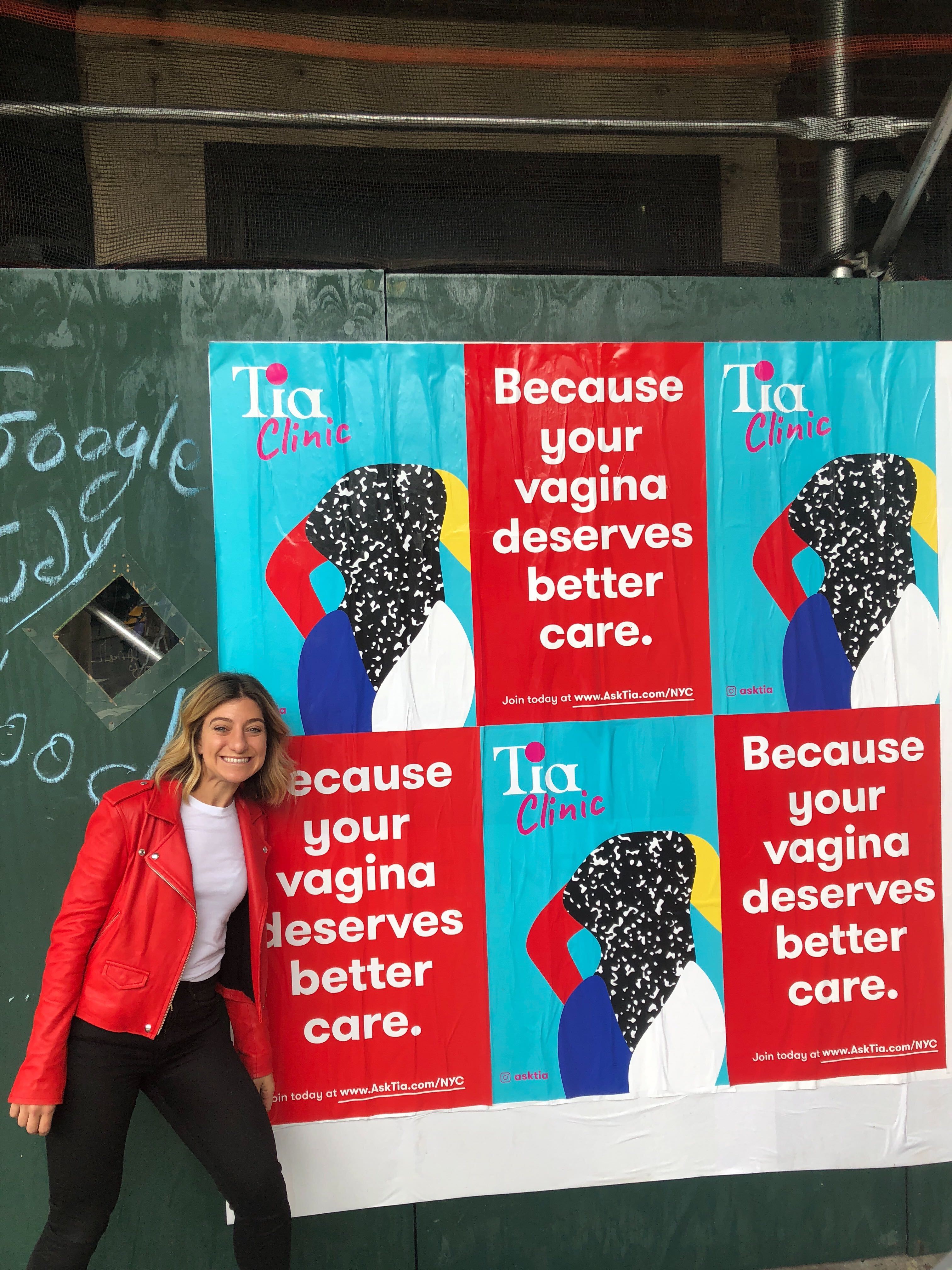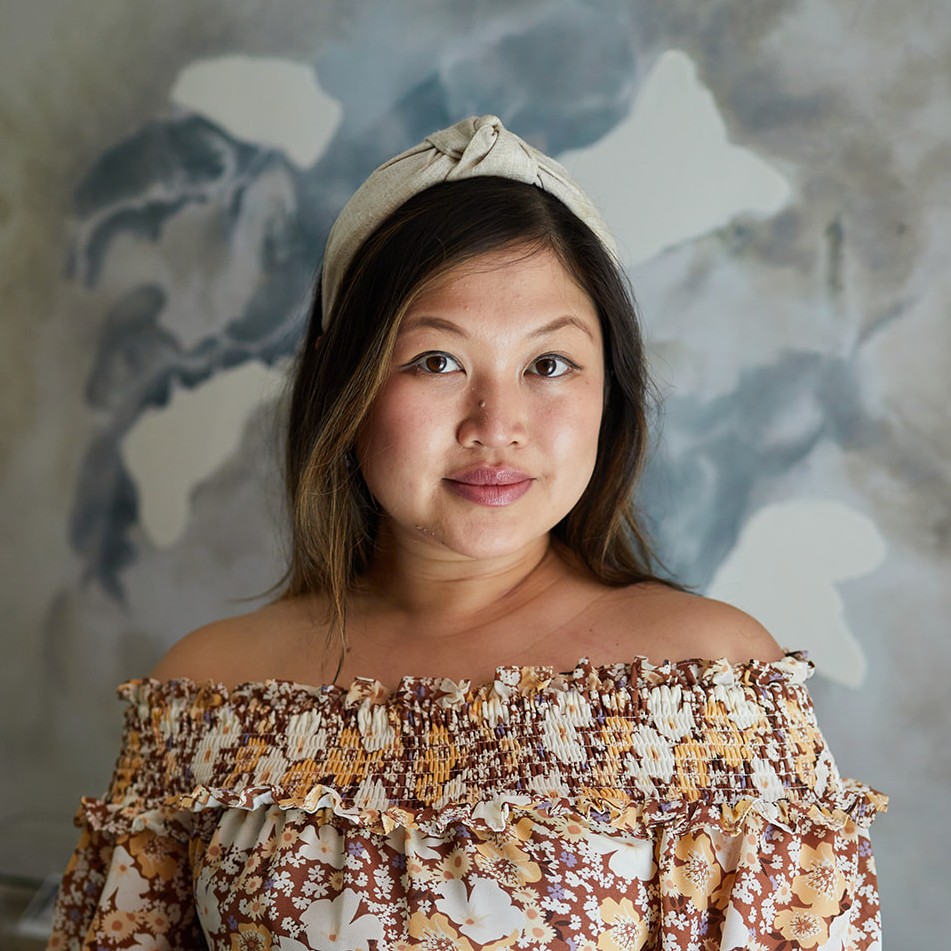Tia Launches Fertility Services, While Cofounders Prepare For a ‘Post-Roe’ America
As women's healthcare startup Tia was gearing up to debut fertility care and a new clinic, the Roe v. Wade leak prompted CEO Carolyn Witte to accelerate plans to offer medication abortions, marking the most defining moment yet for the company.


Fertility treatment is typically seen as a specialty service, something women are not offered until it's proven they have a problem. But Tia—the women's health community and clinic system cofounded by Carolyn Witte in 2017—is recategorizing fertility as an inherent component of primary care.
Infertility is, after all, a looming health crisis. According to the CDC, about one in five women (19 percent) are unable to get pregnant after a year of trying. About one in four women (26 percent) have difficulty carrying a pregnancy to term.
Witte is insistent about redefining fertility care as much as she is recategorizing it. “For years fertility was just IVF and freezing eggs once a person realized they had trouble getting pregnant,” she says. Tia’s approach centers on planning ahead and folds in mental health services.
Women’s health is more complex and an emotional experience, but it largely lacks soul, making women feel trivialized to a body part.
Carolyn Witte, CEO and cofounder of Tia
Tia initially disrupted women’s healthcare by offering primary care, gynecology, and mental health under one roof and within an integrated practice. By adding fertility to the mix, Tia aims to help women through every phase of her reproductive journey, whether they want to be a parent “now, later, never, or not sure,” says Witte.
Services include fertility assessments for adult women of any age, nutrition counseling, egg freezing, and IUDs. In addition to acupuncture, which is known to promote fertility health, Tia is expanding mental health services to offer therapy for women specifically around fertility and virtual support groups for those who experience miscarriage.
“All too often the traditional healthcare system is about transactions versus relationships,” says Witte, also CEO. “Women’s health is more complex and an emotional experience, but it largely lacks soul, making women feel trivialized to a body part.”
Witte is mindful of how traditional fertility care providers have manipulated potential customers. “We won’t launch a series of ads targeting women at their peak fertility years filled with fear tactics, which the male-dominated industry has done for years.”
Get exclusive access to fashion and beauty trends, hot-off-the-press celebrity news, and more.

"Women's healthcare is so much more than an annual pap smear." Carolyn Witte in 2019, when Tia opened its first New York City flagship.
I told the board, ‘This is what a post-Roe world looks like and we need to prepare.’
Carolyn Witte, CEO and cofounder of Tia
In addition to nixing the upsell, Tia aims to solve problems at the source by detecting conditions that can affect fertility. “How do we get a better handle of these conditions and manage them so if or when [the patient] chooses to get pregnant in the future, they’re more successful?” Witte asks. This approach is rooted in her own healthcare struggles, which initially sparked her journey to create Tia.
In her mid-20s, Witte, like so many other young women, was living in New York City without a primary care provider, navigating a complex healthcare system on her own. (Nearly 20 percent of adult women report not having a primary care physician, a rate that runs higher for women of color.)
After three years of seeing multiple physicians about a range of chronic symptoms, she was finally diagnosed with polycystic ovary syndrome (PCOS), one of the leading causes of infertility. “Here’s this specialist throwing questions about infertility at me, but I’m 25 and pregnancy is something I’m not even thinking about yet,” says Witte. The doctor gave her birth control pills for symptom management, but failed to offer holistic solutions. “Not one doctor treated me like a human being. This experience motivated me to build Tia as a whole true medical home for women.”
She moved to San Francisco to live with her college friend Felicity Yost, now Tia’s cofounder and COO. They bootstrapped the company until they secured a seed round in 2017. To date, the startup has raised more than $130 million venture capital funding. Tia opened its first New York City health center in 2019. Then Covid hit, forcing the clinic to temporarily shutter. It went all-digital, and in 2020 saw unprecedented demand for its mental health services to treat anxiety and depression.

Inside the new San Francisco hub. All Tia locations are focused on creating a warm, welcoming environment, sans the typical dreary lighting of most health clinics.
Tia has since reopened as a hybrid care hub, with digital and in-person services in New York, Los Angeles, and Phoenix. This month, it opened its first San Francisco location with the University of California San Francisco (UCSF). The UCSF-run clinic represents the first of 10 sites that Tia plans to open in the Bay Area.
While celebrating the ribbon-cutting in San Francisco, Witte received a “heartbreaking” news alert on her phone about the leaked draft opinion revealing the Supreme Court’s likely plans to overturn Roe v. Wade. (The court's decision won't be final until it is officially published, likely next month.)
Witte was devastated but not surprised. She’s been preparing for this since last summer, when Dobbs v. Jackson Women’s Health Organization—the case the leaked draft was addressing, which deals with the constitutionality of Mississippi’s 15-week abortion ban—went to the Supreme Court.
“That was the canary in the coal mine telling me that the end of Roe could be near,” says Witte. “Since that day, there has been a slow erosion of reproductive rights.”

Cofounder and CEO Carolyn Witte says she welcomes other startups and small local practices, especially those located in rural and urban towns, to mimic the Tia care model.
She raised the issue to Tia’s board of directors, arguing that these consequences will block Tia’s ability to support women in all scenarios and stages. “I told the board, ‘This is what a post-Roe world looks like and we need to prepare,’ ” Witte recalls. In the past, Tia would refer patients to vetted partners, but Witte declared it was time for Tia to expand its scope of abortion services.
In December, the FDA approved abortion medication by mail, removing the restrictive and sometimes dangerous requirement that women physically go to a clinic for a prescription. This unlocked the opportunity for Tia to directly provide medication abortions via virtual visits in the states in which it operates, which for now are New York and California. (In Arizona, where abortion via telemedicine is not permitted, Tia is closely collaborating with a local clinic.)
But what about all the states in between? Although Tia is scaling, the pace isn’t rapid enough to address the massive breakages in healthcare, while women’s reproductive rights are under siege. So, Witte welcomes competitors—be it startups or small local practices—to adopt Tia’s integrative approach.
“It’s a big aspiration for me to see the model to be adopted in every state,” says Witte. “The industry needs changing and we need more services built for rural women and urban women. Because for so long, the bar has been so low.”

Tanya Benedicto Klich is Senior Editor at Marie Claire where she manages the Money & Career section. Over the course of her 10+ years as a journalist she has overseen the coverage of female founders, funders, executives, innovators and more. Tanya was previously a Lifestyle Reporter for Forbes, where she worked at the ForbesWomen and Forbes Lifestyle verticals. She was also a Features Editor at Entrepreneur Magazine, and a former on-air reporter for NY1 News. Tanya is also a graduate of Columbia University Graduate School of Journalism where she specialized in business & economic journalism, and is an adjunct professor at the NYU Arthur L. Carter Journalism Institute. She lives in Brooklyn with her husband and two little sons. Follow her on Twitter: @TanyaKlich